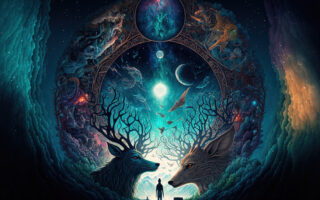The treatment of trauma and psychological crises through spiritual wisdom
Author: Gogo Ekhaya
Sangoma are African spiritual healers who can communicate with spirit beings. They find solutions to problems in the areas of psyche, health, relationships and everyday life in dream and trance states. Much of what Western medicine consideres mental illness is an initial spiritual opening to these realms.
RONALD: Hello everyone! Today we are proud to have Gogo Ekhaya here with us. She is a Sangoma healer who lives in the US and shares knowledge about African spirituality. Please tell us at the beginning, what is your story? How did the Sangoma teachings find you and how did your first encounter with Sangoma spirituality take shape?
GOGO: First of all, I would like to express my gratitude for being here and being invited for this interview. I have always been very curious, and I think it was an inner curiosity that drew me to spirituality. At that point in my life, I was suffering from many mental disorders. But I was also a seeker. So I looked at different ways to process my experiences.
As I was searching, I heard this radio interview with a Sangoma priestess, Yeye Gogo Nan. She lived in the U.S. like me, talking about her story. I was able to connect with that very well. I decided to do an ancestral divination, a kind of oracle reading, with her. This reading is used to identify the information the person wants about their life and where to go. I got one such divination from her, and it was pretty amazing. She told me everything about my life, even though she knew nothing about me.
At the end of that conversation, she told me that I also had the call to become a priestess.
This touched me because it was one of the questions I had written down in advance. That was the beginning of my journey, because I knew it struck a chord in me.
SANGOMAS AND SHAMANS, HEALING AND GROWING
SASKIA: Can you explain what Sangoma means and what is special about this shamanic tradition?
GOGO: Sangoma are traditional healers in the Southern African region, which is South Africa, Swaziland and Mozambique. In different areas, the healers are called Sangoma or Inyangas. The Inyangas are people who work with uMuthi, the herbs. They are herbalists.
Sangoma work with spirits, ancestral spirits and also with medicinal plants as well as with all the elements of earth, air, fire, water and ancestors.
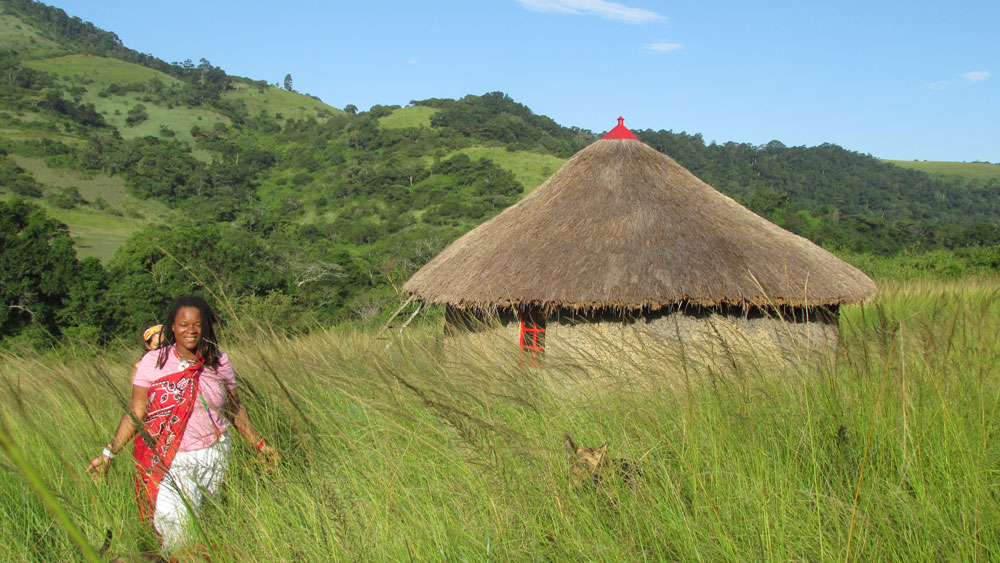 The Healing Knowledge of the Sangoma
The Healing Knowledge of the Sangoma
Therefore, the Sangoma are also called the people of the drum. We work in the form of ceremonies, rituals. The ancestral guardians are working closely with us; they show us how to heal, how to relate and communicate with the elements, how to work with the community, how to solve problems. We seek this advice from our ancestral guides, who in tradition have called us to be priests or priestesses.
The calling to become a sangoma usually comes from ancestors who chose you, who are sometimes in your bloodline, sometimes not, and guide you along this path.
Some of these spirits may have been a sangoma in their lifetime and want to pass on the gift to their daughter, granddaughters and relatives. Thus, sangoma enter into this space of ancestral healing to facilitate the healing of the community. Sangoma are also experts in hearing and seeing voices, and the gifts can be many and varied. But in any case, we use the high sensitivity of our senses to be able to communicate with spirits as well.
THE WESTERN AND THE AFRICAN WORLDVIEW
SASKIA: Is there a difference between the Western and African worldviews?
GOGO: Yes, I noticed that in my own initiation. My teacher, who was also born here in the U.S., shared with me her experience. Her ancestors and lineage had called her to go to Africa to pick up the memory and traditions. I think part of the difference between the Western mindset and the indigenous mindset is that I have to let go of who I think I am.
All the things that have accumulated as my identity up to this moment-I’m a mother of three, I’m an adult, everything I’ve done-all those experiences I had to let go of in order to take in something new, but also something old that was in me, in my DNA, in the memory of my ancestors. So I became a “baby” again, looking at the world with new eyes. I noticed that in the Western way of thinking, we think a lot about questions and answers, about “Oh, why are we doing this, what is this good for?” etc.
The indigenous way is to look at things, quiet down, sit still, watch the elders and teachers, and see how things are done.
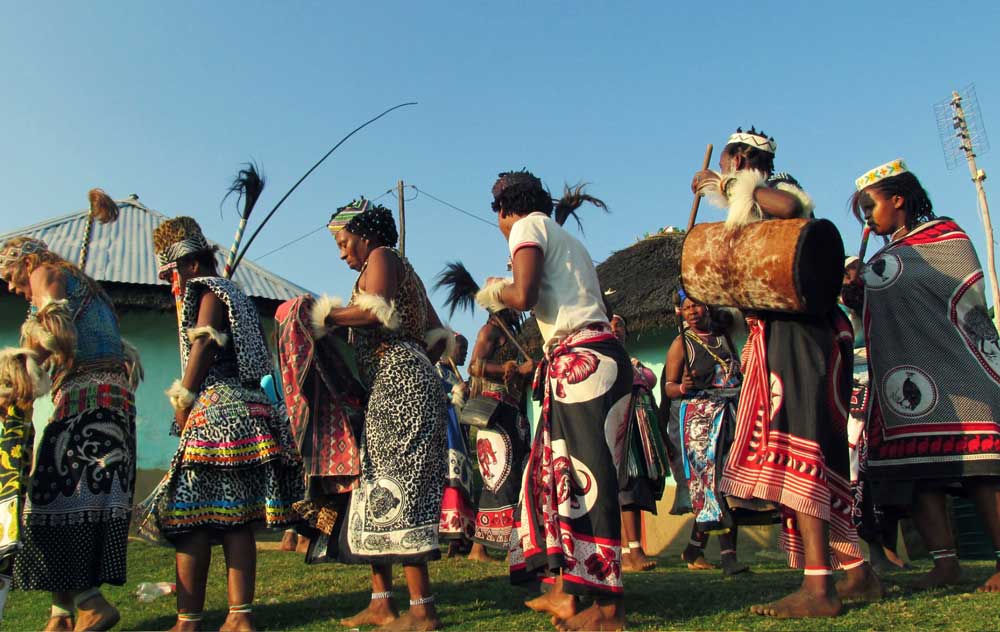 Treating trauma and mental health crises through spiritual wisdom.
Treating trauma and mental health crises through spiritual wisdom.
To learn in this way, it takes a lot of communication. That’s one of the differences I see. I also see the difference not only in Africa but all over the world in bringing the intellect into the heart space and becoming humble. I was in Thailand recently and the way people greet each other is not just ‘hello,’ but they fold their hands and bow their heads every time. When you say goodbye, they do the same. It’s so beautiful to see that connection and that humility. Also in Africa, we say ‘thokoza’ to someone who has spiritual status in the community, and clap our hands in a very specific way. I really appreciate that as a reminder of what humility is and how to balance the mental aspect and heart space.
RONALD: Would you say that the Sangoma teachings are for everyone?
GOGO: The teachings are suitable for everyone, absolutely.
The indigenous way is to look at things, calm down, sit quietly, watch the elders and teachers, and see how things are done.
When you talk about people being called into the tradition, becoming priestesses or priests, I see many different personalities from all over the world, from many cultures, from where their own particular ancestors have called them into the tradition to teach them something about who they are. I would say that vocation is not just about what is visible on the outside. It’s about what’s on the inside and how your ancestors, how your own lineage can choose a certain path to remind you of who you are. So yes, I would say the Sangoma teachings are for everyone.
WOMANHOOD AND EXPERIENCE AS A SANGOMA
SASKIA: How has being a woman impacted your experience as a priestess?
GOGO: Really nice question. My teacher is a woman who carries very masculine spirits with her, and I do too. It’s interesting to see how she transforms from female to male at the beginning of a ceremony and then from male to female again.
When I first traveled to South Africa and saw the people there, I noticed there wasn’t this big fuss about what men do and what women do. We in Africa believe that we have both parts in us, male and female, and celebrate that. When I first went to South Africa, I noticed that many sangoma were women. Being a sangoma was a very matriarchal tradition. Men are also a part of this tradition, but it was so beautiful for me to see so many women there.
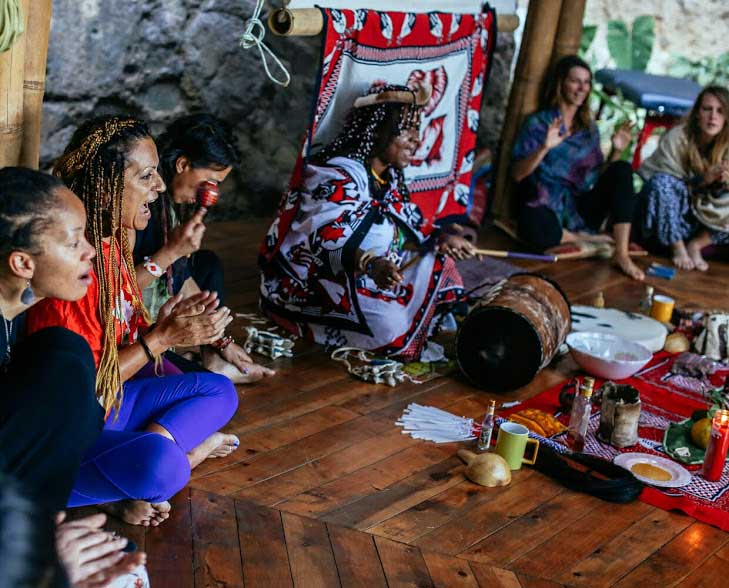 Treating trauma and mental crises through spiritual wisdom.
Treating trauma and mental crises through spiritual wisdom.
When you go to different places often, you see that man dominate in the field of shamanism. But in South Africa, I saw so many women leading communities to this day. Even at my initiation, the house was full of women. So it’s very female led and affirmed. I think it was impressive and empowering to see and feel the feminine energy. That is very important. I feel like Sangoma is just spreading from Africa to the world.
We need to align as a whole to honor the divine feminine and bring the feminine energy to the forefront so that the changes that the earth and our society are asking for can take place. All of this can be done through the power of the divine feminine.
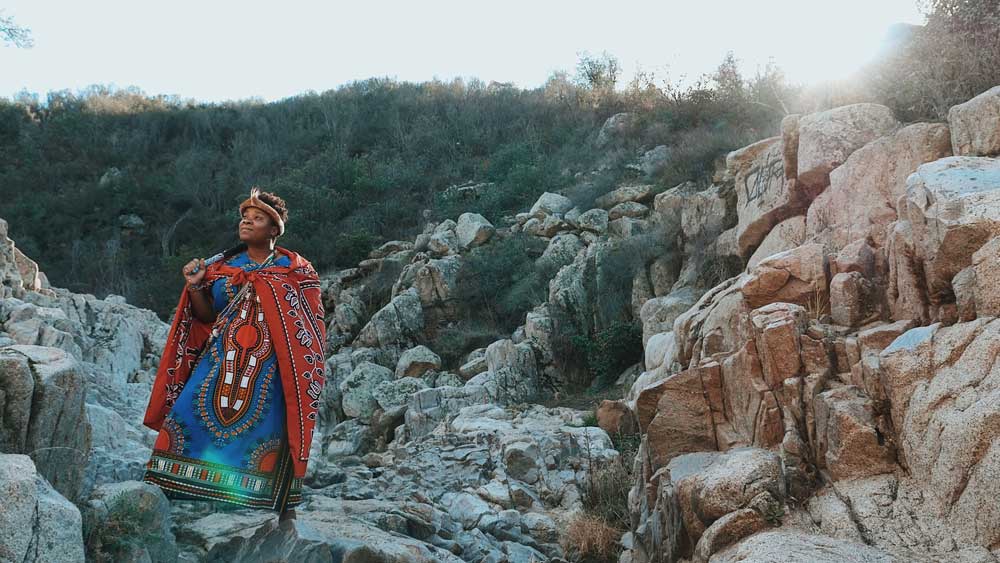 The Healing Knowledge of the Sangoma
The Healing Knowledge of the Sangoma
SASKIA: What kind of people come to you, what kind of treatment do they most often receive?
GOGO: About half or more are people who have received care in the mental health system or have received some kind of psychological diagnosis through Western medicine. They come to seek and perhaps go beyond their diagnosis and see what is happening for them spiritually. The other part is people who realize they are in a revival experience. They are having an “Umbilini” experience, which is the equivalent of the Kundalini experience. That is the Zulu word for it. Many people come to me who are in the process of awakening. This has a lot to do with us humans as a collective.
We are here at this moment to awaken together and help each other and see who we really are.
We can begin to change the vibration of this planet and our human family so that we can evolve in a very beautiful way.
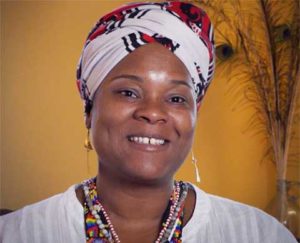 About the author
About the author
Gogo Ekhaya Esima was born in the United States and is an initiated traditional Sangoma healer in the Shangaan and Zulu lineages of Southern Africa. She is a certified mental health recovery specialist, a trauma survivor, and a spiritual teacher. Her own experience with mental health crises and her sometimes frightening, sometimes profoundly beautiful journey through them eventually led her deep into traditional African spirituality. Her ancestral calling helped spark a life-saving, deep memory of the ancient forgotten but not lost ways within her.
Website: www.sangomahealing.com
This article appeared originally on the German Homepage of Tattva Viveka: Das Heilwissen der Sangoma



